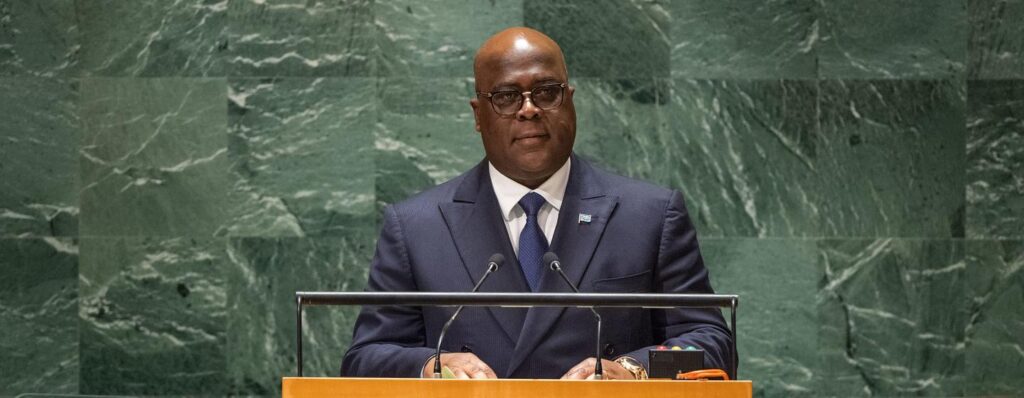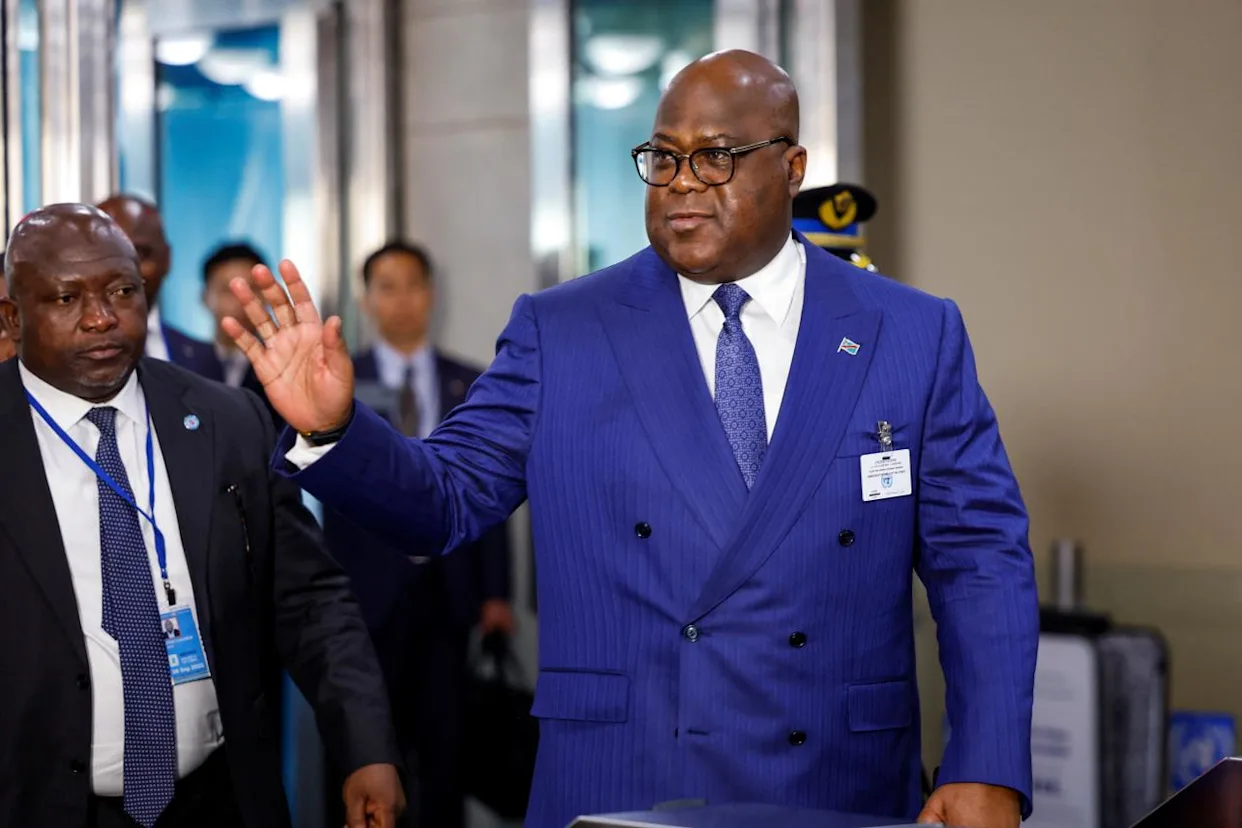New York – In a powerful address to the United Nations General Assembly, Democratic Republic of Congo President Félix Tshisekedi made a solemn and urgent appeal: the international recognition of the ongoing tragedy in the east of his country as a “genocide.” Championing the principle of “Genocost,” the Congolese president used the global stage to highlight the devastating human and economic toll of the conflict, as negotiations with neighboring Rwanda have ground to a halt.
His speech aimed to shake the world’s conscience, moving beyond diplomatic platitudes to call the atrocities by their rightful name.
A Plea for Justice and Memory
President Tshisekedi did not mince words, describing a dire humanitarian crisis fueled by decades of violence and foreign interference. He directly pointed to “Rwanda’s aggression,” accusing it of actively supporting the M23 rebels, a group that continues to terrorize civilians in the North Kivu province.
Incorporating the gravity of his previous statements on this stage, his message echoed a clear charge: “The civilian populations are subjected to massacres, mass displacements, and other serious violations of human rights, including sexual violence used as a weapon of war.” He argued that these systematic atrocities are not random acts of violence but part of a calculated “plan of plunder and extermination.”
“It is time for the world to call this tragedy for what it is: a genocide,” he insisted, demanding that the international community move from mere condemnation to concrete action. This call for recognition is a strategic move to trigger more robust international legal and diplomatic mechanisms against those responsible.

“Genocost”: The Staggering Price of Inaction
Central to President Tshisekedi’s argument is the innovative concept of “Genocost.” This term was introduced to quantify the immense economic and social cost of the alleged genocide. The principle argues that the world must measure not only the tragic loss of life but also the crippling economic devastation.
This includes:
- The destruction of infrastructure.
- The illicit plundering of the DRC’s vast natural resources, such as coltan, cobalt, and gold.
- The long-term psychological trauma and societal breakdown.
- The immense cost of humanitarian aid, which treats the symptoms but not the cause.
By framing the issue in economic terms, Tshisekedi is making a pragmatic appeal to global leaders and financial institutions. The core of his message is that inaction is far more costly than investment in peace. Preventing conflict and ensuring justice, he argues, is not just a moral imperative but also a sound economic strategy. He powerfully stated, “Peace has a price, certainly, but war, and the genocide in the east of my country, has a cost that is unbearable and that humanity can no longer ignore.”
Diplomatic Deadlock with Rwanda
Tshisekedi’s impassioned speech comes amid a complete stalemate in peace talks with Rwanda. Regional mediation efforts, such as the Luanda and Nairobi processes, have failed to produce a lasting ceasefire or the withdrawal of M23 rebels.
Kinshasa’s position remains firm: no further negotiations until Rwanda ends its support for the M23 and its troops withdraw from Congolese territory. Kigali, however, continues to deny its involvement despite overwhelming evidence presented in numerous UN expert reports.
This diplomatic impasse has pushed the DRC to adopt a more assertive international strategy. The call to recognize the genocide is the centerpiece of this new approach, designed to diplomatically isolate Rwanda and pressure the UN Security Council into imposing stronger sanctions. President Tshisekedi’s address was not just a speech; it was a formal accusation on the world’s highest stage, demanding that the international community finally choose a side. The question now is whether this bold plea will be heard, or if it will fade into the annals of diplomatic history while millions continue to suffer.



